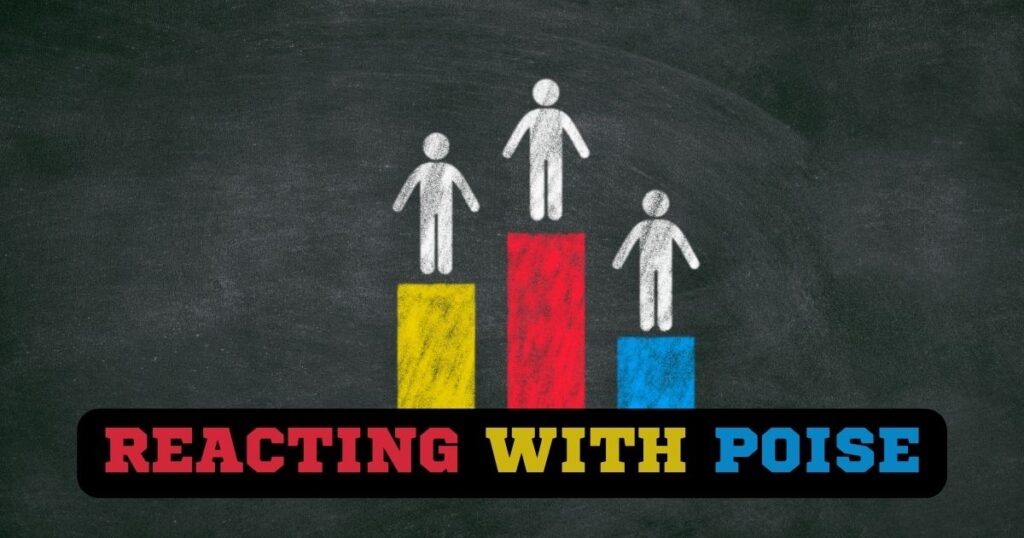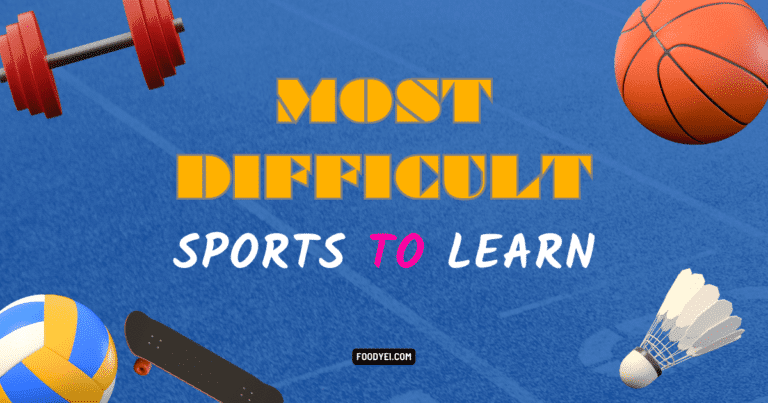Developing good sportsmanship and strong character may matter even more than championships when it comes to getting value from sports. This article explores why playing fairly and respectfully renders as much worth as winning titles, how to nurture sportsmanship in youth, and how proper perspective and priorities lead to growth. While supreme talent remains revered, it becomes hollow without honor.
Why Sportsmanship Matters
Sportsmanship represents conducting oneself with integrity and respect for all competitors. But why does it truly matter?
- It sets a positive example for others to follow, especially impressionable young athletes.
- It enhances the reputation of teams, leagues, and players as honorable ambassadors.
- It helps make participation in sports more enjoyable for all by reducing animosity between opponents.
- It unifies communities by reinforcing shared principles and values through sports.
- It demonstrates humility and perspective in the heat of intense competition.
- It earns the sincere respect of opponents, officials, and observers.
- It reduces harmful behaviors like cheating, dirty play, and unsafe actions that can cause injuries.
While difficult in heated, emotional competition, maintaining high standards of sportsmanship helps preserve the core integrity and developmental value of sports.
Modeling Through Leadership

- Coaches, team captains, veteran players, parents, and organizational staff modeling ethical behavior establish a culture of sportsmanship:
- Teachers and coaches must take time to directly teach the rules and expected codes of conduct. Set standards.
- Discuss the conceptual value of fair play, respect, and sportsmanship with students and players. Explore meanings.
- Highlight admirable examples of dignified character, grace, and poise in relevant teaching moments. Set examples.
- Make it clear that poor behavior like malicious fouling, taunting, or disrespect will not be tolerated without accountability.
- The principles of sportsmanship must be reinforced constantly through actions for young minds to embrace them. Be consistent.
Impressionable developing athletes need consistently modeled examples of ethical behavior and sportsmanship in action from leaders. This establishes norms.
Practicing Respect for Officials
Treating referees, umpires, and judges with basic human respect and restraint, even in moments of vehement disagreement, represents good character.
- Accept that reasonable judgment calls will differ but remain impartial given the angles and speed of play. Grant grace.
- Voice objections and clarify interpretations calmly through proper procedures, not with emotional outbursts fueled by anger. Keep cool.
- Assume positive intent – officials do not have vendettas but rather aim to enforce rules fairly. Seek to understand.
- Clearly set expectations surrounding sideline and on-court interactions with officials by coaches and players.
- Avoid blatantly undermining official authority through dismissive gestures, mockery, or questioning every call. Pick battles.
Officials volunteer significant time and effort to facilitate fair play, often thanklessly. Treating them with dignity keeps sports in proper perspective.
Displaying Appropriate Competition
Competing with intense effort within the rules earns respect. Employing malicious physicality and dirty tactics does not.

- Hustling with relentless but clean hard work builds reputations. Leave it all out there, but legally.
- Helping up opponents you just leveled with a tough block or tackle displays respect for physicality inherent in sports. Be helpers.
- Avoid showboating, excessive celebrations, and taunting opponents. Let your stellar play speak for itself.
- Don’t fake injuries or make excuses. Take lumps and losses with accountability rather than gamesmanship.
- After fierce contests, make efforts to sincerely shake hands, hug, and swap jerseys. Symbolize the brotherhood of sports.
How athletes approach competition and contact reveals as much about character as talent. Leaving everything on the field while maintaining dignity earns universal respect.
Regarding Opponents with Dignity
Making the conscious effort to treat fellow competitors as complete human beings with value beyond just being opponents represents progress.
- In the heat of rivalry, avoid dehumanizing language and needlessly hostile tactics. Respect shared humanity.
- Do not wrongly conflate physical talent or victory with character or morality. Two separate realms.
- Be willing to sincerely applaud and acknowledge remarkable performances and efforts by all. Appreciate excellence.
- Refrain from actions aimed solely at intimidating or provoking opponents mentally and emotionally. Take the high road.
- Make an effort to check on injured players and show support regardless of team affiliation. We’re all in this together.
Choosing empathy and recognizing shared challenges on the road to achievement breeds compassion over contempt between competitors.
Reacting with Poise
Handling heated interactions, calls, physicality, and verbal exchanges with self-control and discipline represents personal growth.

- Take a breath rather than instantly reacting at the moment to a contentious situation. Collect yourself.
- Address conflict with fellow competitors respectfully and with reason, not escalating things confrontationally. Aim for resolution.
- Accept sincere apologies from contrite parties. Allow growth.
- Refuse to hold grudges or dwell on perceived slights. Move on and look ahead.
- For serious issues, report them calmly through proper channels and procedures, not by taking matters into your own hands.
Pausing, processing, and responding appropriately in tough moments manifests personal discipline and emotional maturity. It sets the right example.
Acknowledging Defeat with Grace
Dignified public responses to difficult losses reveal resilience, perspective, leadership, and exceptional character.
- Refrain from dwelling on officiating or other external factors when explaining defeat. Own it.
- Strive to find silver linings in rough losses, focusing on lessons learned to fuel improvement. Extract positives.
- Make efforts to sincerely compliment opponents on their competitive spirit after losses. Acknowledge being beaten by better preparation, effort, or skill.
- Prioritize safety and human welfare over retaliation when emotional after losing. Take accountability over retribution.
- Represent your team, coaches, community, and family with the utmost class and dignity, win or lose. Uphold standards.
Losing with grace distinguishes exceptional leaders while revealing inner toughness, confidence, and exemplary character even in disappointment.
Celebrating Victories with Humility
Remaining humble and magnanimous in the glory of victory represents leadership and ideal sportsmanship.
- Make efforts to publicly credit and thank teammates, coaches, staff, and supporters in postgame speeches. Share praise.
- Embrace opponents sincerely after wins, acknowledging that you needed their competitive spirit to prepare properly and perform under pressure. Be grateful.
- Keep postgame celebrations friendly and within reason. Avoid excessive self-centered showboating at the expense of the defeated. Stay classy.
- Briefly enjoy the hard-earned feeling of victory, but quickly reset for the next challenges ahead. Don’t rest on laurels.
- Stay grounded in the preparation work and deliberate process undertaken to achieve wins. Focus on the journey.

True modesty in the spotlight of success reflects admirable humility. It keeps winners cognizant of future improvements needed to stay on top.
Promoting Inclusion and Teamwork
Team sports uniquely bond teammates together through shared goals, values, and experiences. Make earnest efforts to be welcoming.
- Do not ever discriminate against team members based on demographic traits or skill differences. Foster team cohesion.
- Make sincere efforts to stand up for mistreated peers facing discrimination. Be an ally.
- Proactively invite the involvement of quieter teammates in discussions or activities. Seek to draw them out.
- Gladly share credit for team achievements broadly. Succeed collectively.
- Put in work to build real relationships and friendships that extend beyond just the field of play.
True camaraderie and inclusion, not exclusivity, is what makes great teams special. Treasure and help grow these bonds.
Conclusion
While extreme competitiveness drives sports, good sportsmanship and strong character elevate them. Respect, ethics, and fair play should be prioritized as much as talent. Modeling high standards and principles provides valuable life lessons for youth while bringing communities together through sports. Upholding integrity makes the game lasting and impactful.
FAQs
How can parents instill good sportsmanship habits in their kids?
By modeling respectful behavior, praising effort over the outcome, redirecting poor reactions, cheering the whole team, and emphasizing values of character, teamwork, and compassion in discussions.
What are the most important traits of a captain or team leader when it comes to sportsmanship?
A leader must set the tone by demonstrating composure, accountability, work ethic, respect for all, and commitment to principles. Their example establishes team culture.
How should coaches manage difficult parents who set poor examples?
Have candid discussions, set expected standards of behavior, enforce policies consistently, follow protocol to issue warnings, and restrict involvement if disruptive behavior persists.
Why does poor sportsmanship, unfortunately, persist in some youth sports leagues?
Lack of education, hyper-competitive parents transferring unrealistic expectations, enabling by coaches, officials avoiding confrontations, and influential players modeling bad attitudes.
What is signs sportsmanship initiatives are positively impacting school or community sports culture?
Observing more helping hands, sincere postgame embraces, Officials feeling respected, diversity embraced, less taunting or showboating, and principles discussed proudly.
How can sports media better emphasize and model good sportsmanship?
Profile acts of respect, ethics, and character, avoid glorifying poor behavior for entertainment, hold professionals and outlets accountable, and educate young viewers on standards.




